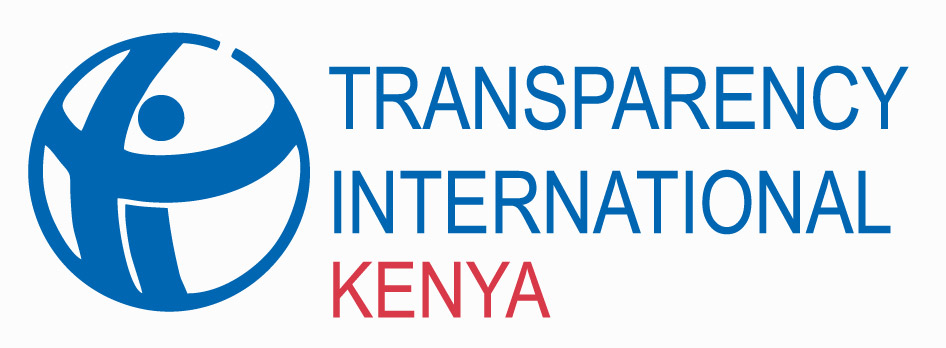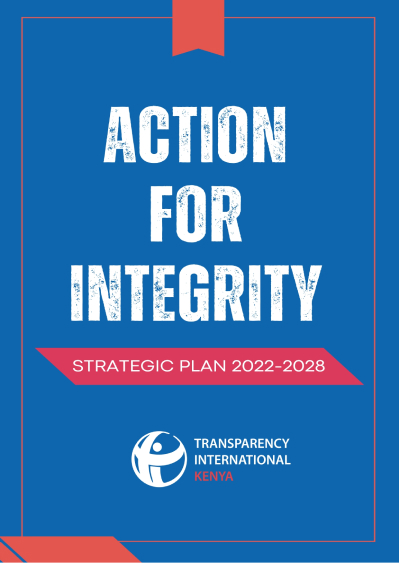
In March, Kenyans watched with dismay Africa Uncensored’s two-part documentary dabbed Fertile Deception – exposing how unethical businessmen exploited the fertilizer subsidy program by selling sand disguised as organic fertilizer to unsuspecting farmers. The story was triggered by a whistleblower who was privy to what was happening at a diatomite mining plant in Kariandusi, in Kenya’s Gilgil, Nakuru county.
The whistleblower remains anonymous, presumably for fear of repression, due to the absence of a comprehensive whistleblower protection framework which has left courageous individuals vulnerable to the horrendous acts of retaliation when they speak up against corruption. The Ethics and Anti-Corruption Survey Report 2023 established that 57.3% of Kenyans perceived corruption to be high and a further 86% of the respondents feared reporting corruption cases due to potential harassment, reprisal and fear of victimization. The effect of this is that the majority of cases remain unreported creating more room for corruption to thrive.
Besides, we are alive to the suffering of CPA Spencer Sankale – one of the whistleblowers of the ‘Maasai Mara Heist’ that came to light in 2019 and his dismissal from duty in 2021; he was jobless for almost two years until May 2023 when he was appointed to the Tax Appeal Tribunal as a member. CPA Spencer’s story of securing new employment is one in a million, as Kenya has a history of Whistleblower’s that remain unemployed due to the stigma attached to whistleblowing. In a surprising twist of events, the Employment and Labour Relations Court awarded one of the suspects of the well documented heist Ksh 81 million for wrongful dismissal while the whistleblower still awaits judgment on his case challenging dismissal by the same institution. In a further twist, the Masai Mara case was dismissed by the court with the main suspect thereafter slapping CPA Sankale with a Ksh 40 million demand note citing defamation and privacy breach caused by reportage of the case.
We will never forget the late David Munyakei, the whistleblower in the Goldenberg scandal who lost his job at the Central Bank of Kenya more than 30 years ago and died a destitute. In 2021, Jennifer Wambua, who was the then deputy communications director at the National Land Commission was found dead, at a time when she was a state witness in a Ksh 122.3 million fraud case in which 18 people including public officials were charged. Her reporting of this case was suspected as a motive for her killing. Their sad stories and those of many Kenyans who cannot come forward to report acts of corruption necessitate the urgent need for Kenya to establish a comprehensive whistleblower protection policy, legislative and institutional framework.
Kenya’s commitments towards the fight against corruption remain shaky in the absence of comprehensive whistleblower protection legislation. Whereas Kenya has ratified the United Nations Convention on Anti-Corruption (UNCAC 2003) and the African Union Convention on Preventing and Combating Corruption (AUCPCC 2007) that provide a base for the protection of whistleblowers, the country is yet to put in place a comprehensive whistleblower protection law. Further, existing laws that have a bearing on whistleblower protection are not adequate and comprehensive enough to give full protection to whistleblowers. Ironically, the Anti-Corruption and Economic Crimes Act 2003 is the main anti-corruption legislation and provides for corruption offences, it does not explicitly provide for the role and protection of whistleblowers.
The introduction of the Whistleblower Protection Bill 2023 last year, after ten years of pushing the draft bill, was a positive step towards the realisation of advocacy efforts to have in place a proper mechanism for the protection of Whistleblowers. The Bill recognises the adverse effects of corruption and the need to protect whistleblowers owing to their critical role in the fight against corruption. Key provisions under the Bill include the obligation on individuals to disclose information in situations where they know that improper conduct has occurred or is likely to occur; and a penalty for individuals who fail to do so; an elaborate mechanism for disclosure for both public and private entities; confidentiality of information provided by whistleblowers, immunity from civil or criminal liability in relation to disclosure and protection against reprisal. Further, whistleblowers have the option of lodging complaints to the Ethics and Anti-Corruption Commission against individuals who perpetuate reprisals. The Bill is currently under review by the Office of the Attorney General and is yet to be opened for public participation and cabinet approval before being submitted to Parliament for consideration. Other versions of the bill are at the National Assembly and Senate, and with the various efforts, Kenyans hope that the country will finally have a law in place.
The Attorney General and Parliament should fast-track the adoption of the Whistleblower Protection Bill 2023. This bill represents a significant step in bolstering anti-corruption efforts in Kenya by ensuring the protection and empowerment of those who dare to speak out against wrongdoing. By safeguarding whistleblowers, we can foster a culture of transparency and accountability, paving the way for a more just and equitable society. Honouring the bravery of past and present whistleblowers by turning their sacrifices into meaningful and lasting change is imperative.
Sheila Masinde, Executive Director, Transparency International Kenya

